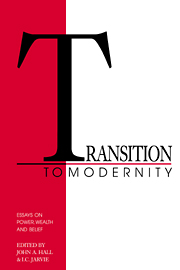Book contents
- Frontmatter
- Contents
- List of illustrations
- List of contributors
- Introduction
- PART I THE PRE-MODERN WORLD
- PART II TRANSITIONS TO THE MODERN WORLD
- PART III MODERNITY AND ITS DISCONTENTS
- 8 Science, politics, enchantment
- 9 Deconstructing post-modernism: Gellner and Crocodile Dundee
- 10 A methodology without presuppositions?
- 11 Gellner's positivism
- 12 Left versus Right in French political ideology
- 13 Property, justice and common good after socialism
- 14 Social contract, democracy and freedom
- 15 Thoughts on liberalisation
- 16 Peace, peace at last?
- Indexes
13 - Property, justice and common good after socialism
Published online by Cambridge University Press: 02 February 2010
- Frontmatter
- Contents
- List of illustrations
- List of contributors
- Introduction
- PART I THE PRE-MODERN WORLD
- PART II TRANSITIONS TO THE MODERN WORLD
- PART III MODERNITY AND ITS DISCONTENTS
- 8 Science, politics, enchantment
- 9 Deconstructing post-modernism: Gellner and Crocodile Dundee
- 10 A methodology without presuppositions?
- 11 Gellner's positivism
- 12 Left versus Right in French political ideology
- 13 Property, justice and common good after socialism
- 14 Social contract, democracy and freedom
- 15 Thoughts on liberalisation
- 16 Peace, peace at last?
- Indexes
Summary
In his recent and impressively lucid analysis of The Right to Private Property, Jeremy Waldron takes as his central challenge a question which extends back at least to Plato and Aristotle. As Aristotle expressed it in the Politics: ‘What are the best arrangements to make about property, if a State is to be as well constituted as it is possible to make it? Is property to be held in common or not?’ In the present century the contest between defenders of private and common property has frequently appeared as the principal issue in world politics; and it has long been a pressing concern in the domestic politics of Great Britain. (It would certainly take more than Mrs Thatcher to eliminate it from the latter arena.) In the course of the Presidencies of Ronald Reagan and Mikhail Gorbachev and of the Premiership of Mrs Thatcher it has come to be widely assumed that this contest has reached a decisive outcome. Economies organised largely on the basis of common property, it is now all but universally agreed, cannot assure the prosperity of modern populations; and because they cannot assure their prosperity they cannot, in the long run, guarantee their security either. Since the overweening claims to authority made by modern states depend directly for their cogency upon these states' capacity to secure the welfare and safety of their citizens, the custodians of modern state power have little choice in eschewing common ownership as a dominant principle in the organisation of production. They may still choose to acknowledge this practical constraint with better or worse grace. But they flout it at their peril.
- Type
- Chapter
- Information
- Transition to ModernityEssays on Power, Wealth and Belief, pp. 281 - 296Publisher: Cambridge University PressPrint publication year: 1992
- 2
- Cited by



